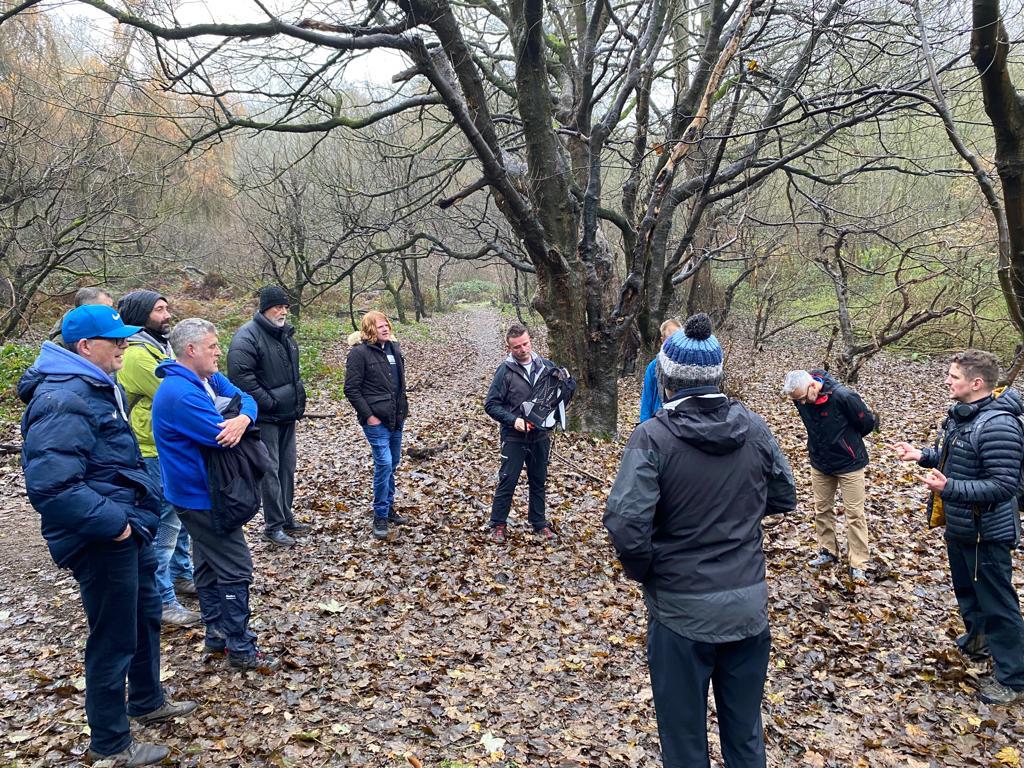This year, World Mental Health Day (10th October 2025) shines a light on how repeated exposure to crises and conflicts can impact our mental health.
Everywhere we turn — TV, radio, social media — the news follows. Even when you open one article, it leads to another, and another. Before long, you’re stuck in a loop of distressing headlines and negative commentary.
This behaviour has a name: doom scrolling — the habit of consuming endless streams of bad news online. It’s a cycle that can leave you feeling helpless, anxious, and disconnected from your own world.

Why Men Feel It More Than They Admit
Many men pride themselves on “staying strong” — but constant exposure to negative news can wear anyone down. You might not call it stress, but you’ll feel it: tiredness, irritability, lack of focus, or that heavy sense of “what’s the point?”
It’s not weakness. It’s a normal reaction to a world that never switches off. But the good news is that there are ways to take back control and protect your headspace.
How to Stop the Spiral and Rebalance Your Mind
The Mental Health Foundation reminds us that feeling overwhelmed by global events is completely natural.
Here are some small but powerful steps to protect your wellbeing.
1. Create Tech-Free Zones and Times
Phones make it easy to stay “always on,” so build boundaries that help you switch off.
Keep your phone out of the bedroom or dinner table.
Turn off “push” notifications for news and social media.
Use a physical alarm clock instead of your phone.
These simple changes can give your brain the breathing space it needs to reset..
2. Set News Boundaries
You don’t need to consume the news 24/7 to stay informed. Choose one reliable source and check it once or twice a day.
If you catch yourself doomscrolling, set a timer or schedule a replacement habit — a walk, a cuppa, or a chat with someone. Your mind will thank you.
3. Balance the Negative with the Positive
Balance doesn’t mean ignoring the world — it means making space for joy, too.
Read something uplifting, get outdoors, or listen to music that calms you. Affirmations like “I can set limits to look after my energy” or “Progress is better than perfection” can remind you that self-care isn’t selfish. Take a look at the affirmation cards available from Mental Health Organisation to help you.
4. Walk, Talk, and Connect
When you feel overwhelmed, connection helps. Talking about what’s going on in your head doesn’t make it worse — it helps you process it.
At Walk & Talk, we offer:
- Walk and Talk sessions – guided walks where conversation flows naturally.
- Talk and Talk groups – relaxed, confidential meetups with a guest speaker and a chance to share experiences in a safe environment.
- Exclusive member events – wellbeing activities designed for men.
It’s a safe, supportive way for men in Leighton Buzzard and surrounding areas to find connection, movement, and purpose.
5. Focus on What You Can Control
You can’t fix every global issue, but you can take small, meaningful actions. Check in on a mate. Volunteer. Spend time in nature. These actions restore a sense of purpose and balance.
6. Rest, Recharge, Repeat
Taking a break from the news doesn’t mean you don’t care — it means you care enough to look after your mental health so you can keep showing up. Rest is not laziness. It’s maintenance for the mind.
You’re Not Alone
If you’re feeling weighed down by the world, remember — you’re not the only one. Every man deserves the space to breathe, talk, and take care of his mental health.
Join Walk & Talk for one of our community walks, talking groups, or events. Together, we’ll help you find calm, connection, and confidence — one step at a time.


